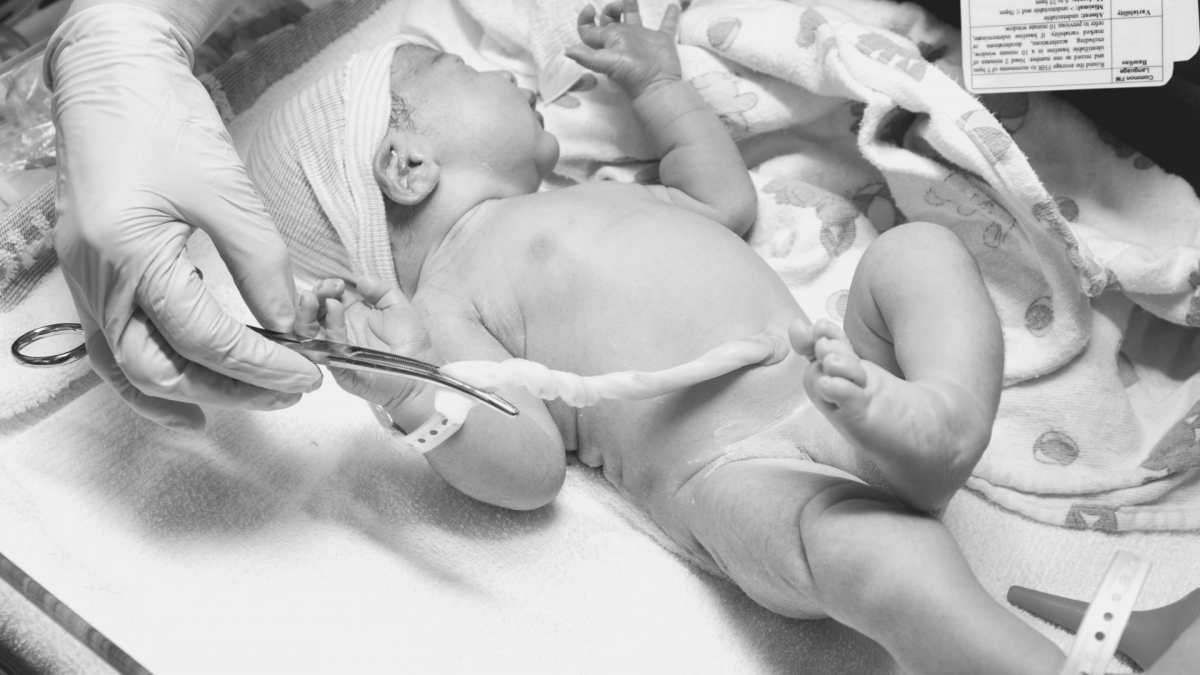It is important that all parents make an educated decision on banking their baby’s cord blood. Parents can google “cord blood” and be on the internet for hours. My hope is that by the end of this blog, you will have the information you need to make choosing a cord blood bank that’s right for your family an easy decision.
What is Cord Blood?
Cord blood is the blood that is left in the umbilical cord after your baby is born. This blood contains valuable stem cells. When you choose to bank your baby’s cord blood, these stem cells are collected at delivery and cryopreserved in a secure facility in the event your family needs them in the future.
Unique and Powerful Cells
Your baby’s stem cells have powerful healing capabilities. A single cell can replicate and become many cell types. Cryogenically freezing your newborn’s stem cells preserves them while they are young and in pristine condition, so your family can access them in the future for medical therapies.
Delivering Hope for the Future Through Ongoing Research
Besides current therapies for cancer and blood diseases, cord blood stem cells are being studied for new treatments in regenerative and transplant medicine, including conditions like autism, cerebral palsy, hearing loss, heart defects, and diabetes. With nearly 80 diseases currently being treated and more being studied every day, banking your newborn’s cord blood can open doors to a world of new possibilities.
Choosing a Cord Blood Bank
When researching what bank to choose, you should ask yourself the following questions:
- “Does the bank processes samples in an FDA-licensed facility?” (Accreditations)
- “How many units has the lab released for transplants?” (Experience)
- “Who can I speak to if I have questions?” (Clinical support)
- “How does the bank protect my baby’s stem cells during transport?” (Quality)
- “What quality guarantee does the lab offer?” (Confidence in lab procedures)
Accreditations
Look for a lab that is FDA approved. Most cord blood banking companies are only registered with the FDA. The FDA has only licensed eight cord blood banks. In order for the FDA to license a cord blood bank, they must pass stringent criteria to qualify for a BLA or Biologics License Application. On the other hand when a bank is FDA registered, it means they have submitted a list of their products and each of the manufacturing steps they perform to the FDA. When a firm registers with the FDA it does not mean that firm is “endorsed” or approved by the agency.
Experience
You want to look for a lab’s experience and accreditation with a highly trained staff that has experience in all aspects of cell care. Looking at a lab’s transplant experience is an important validation that the company has processed the cells and then released them for treatment. When choosing a cord blood bank, look for a FDA licensed facility with experience releasing units for nearly 1,000 transplants successfully have released units to over 100 hospitals
worldwide.
Clinical Support
Look for a cord blood bank that had extensive genetics experience and offers complimentary information sessions with certified genetic counselors. These counselors can answer any questions you may have about the current and potential uses for cord blood and tissue.
Quality
Many cord blood companies take measures to protect the stem cells while in transit, but very few have unbiased comparison studies to prove their claims. Look for a bank that can provide a comparative scientific study showing how your baby’s stem cells viability will be protected, even in extreme temperature situations.
Confidence
Look for a lab confident enough to give a guarantee of the viability of your child’s stem cells. Some labs will offer guarantees as low as $25,000 while another offers to will refund all service fees paid by you and pay you an additional $100,000.
Have questions?
For more information, contact Michelle Abbruzzese, Evercord Cord Blood Educator, Westchester NY at mabbruzzese@Natera.com or 860-490-8334.
Other Blogs You May Like
D is for Delayed Cord Clamping
Prenatal Birth Planning Session: What to Expect
You Might Poop When Pushing. But It’s Not a Big Deal
This blog is for informational purposes only. It does not take the place of consultation with your and your baby’s medical team. The view portrayed in this blog is that of the author. The presented view is not necessarily representative of Blissful Birthing.

